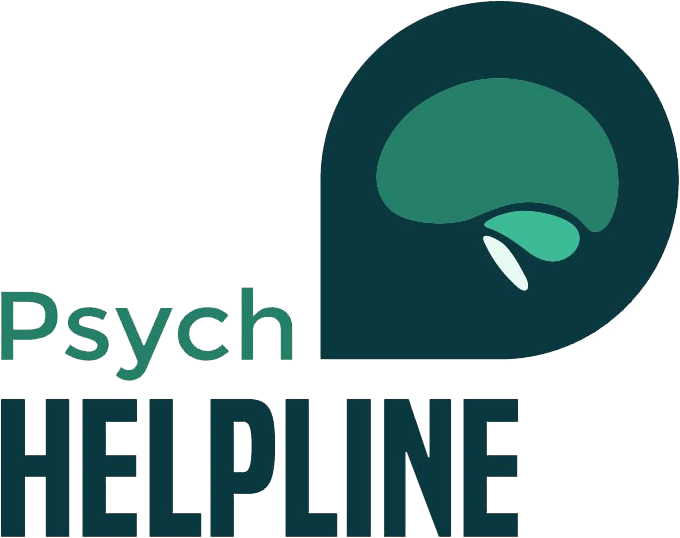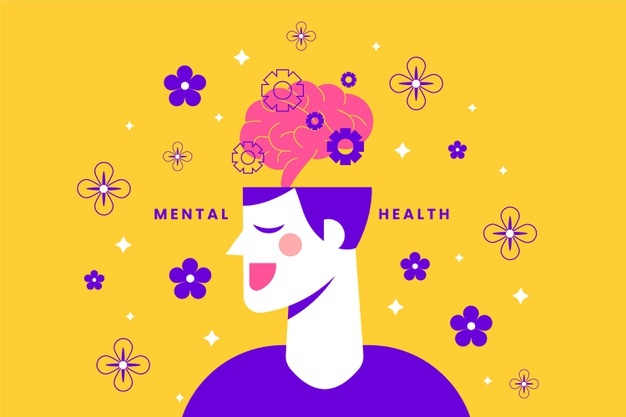Table of Contents
Why mindful health and wellness?
You must have heard the rumor about “mindfulness,” but you are not sure about what it is or how to apply it in your life. Turns out, it is so simple just as taking a few moments to focus on yourself.
“Health and wellness” have been a major trend globally for over two decades now. Restoring physical strength is definitely is not the only way to wellness. Diet, exercise, sleep, stress management, and one’s general overview of life are all censorious too.
Being mindful means paying close attention to what is happening at the moment. Simply, mindfulness is about being in present. It means noticing what is happening inside your mind and body. And it also means what is happening around you.
“Mindfulness” seems to be the newest rumor word, the next thing we are supposed to be labor for, the cure for our anxiety, stress, and modern problems. The magic of mindfulness is that it already exists in us. We just need to learn how to access it.
When you are being mindful, the solution is not to label or judge what is happening. Your feelings are not just bad or good. They just are. In this way, mindfulness is all about observing your surroundings. You start noticing your life with a little distance, instead of reacting emotionally.
The opposite of mindfulness is being on automatic pilot (autopilot). That is when you do things without thinking about it or consideration. You are on autopilot, for example, when you back out of your parkway and head to work on a Saturday when you meant to go to the park.
Habitual behavior has become very functional to us over the years as it allows us to be more well organized. It means we don’t have to think about every single activity we do every day. But not our all habits are healthy habits.
When did you think about what you put in your mouth, and how are you breathing, and how much time do you spend on your phone, or what time you went to bed? How conscious are you about the choices you are making that impact your health and wellness?
Consciously making hardly one or two decisions creates capacity for us over the years as it allows us to be more present and creative. You might have heard about the term “decision fatigue”? I am sure you must have felt bombarded by the utter number of tasks and decisions that require attention on a daily basis. Barrack Obama, Steve Jobs, Mark Zuckerberg, and including Albert Einstein are all prominent individuals who have decided to cut down on the number of decisions they made every day by embracing a monotonous wardrobe, a uniform. Deciding what to wear each day can be relatively small and menial, but it is still something that requires thoughtful planning and attention. Even deleting a small decision like the one we have mentioned helped them become some of the most productive and successful individuals in history.
In this article, I would like to encourage you to create productive habits and routines that add value to your life and enhance your health and wellness. I will talk about food and diet, movement and exercise, rest, relaxation, and appreciation.

How do you know you are doing it right?
If you want to know whether you are doing it right or not you just have to focus on the present. No matter what the time or place is: in your car, standing in a line, or at work.
Try to do “single-tasking.” This means you are doing one thing at a time and giving it your full attention.
Here are the few tips to be mindful of when you have a few minutes to yourself and don’t need to concentrate on a more difficult task (like driving):
First, stop and focus on your body: Notice what you hear and see. Also, what you smell, taste, and feel is also very important. Do not label these commotions as good or bad. Just let them go.
Then narrow your focus: What do you feel in your body? Notice precise sensations like an itch or tingling. Try to give each part of your body a moment of your attention. Start it with your head and move it to your toes.
Next, be more determined on your breath: Figure out where in your body you feel it the most? And rest your attention there.
Ask yourself, “How am I at this moment”? Know your thoughts and emotions. Try to spend a few moments with them, being with things as they are. Allow your feelings to be present without judgment.
When your mind wanders: And it will definitely wander your mind, simply return to your breath. You should not need to beat yourself up for losing focus.

What Mindfulness Can Do for You
If you are being mindful it can help you notice when you are on autopilot. That can let you change your decision about what you are doing at the moment, instead of regretting it later.
Let’s say if you are eating a pack of chips in front of the TV because it is your evening pattern. Being a mindful person can help you break free from the autopilot haze and take a moment to make a different choice. You can eat carrots instead of chips, or decide to skip TV and take a walk around your block instead.
Mindfulness can keep you connected with your goals and hopes. Focusing on the moment keeps you calm instead of reacting quickly and doing what you easily do without thinking about it, like feeling stressed and grabbing a bid MacDonald’s deal.
Mindfulness and Mental Health:
How you can use it to lose weight?
If you want to lose weight and it is not easy for you to make your mind start working out or go for a walk or stop yourself to eat junk, so you can use this practice to help you achieve and maintain a healthy weight.
With food, you have many chances to be mindful:
- Do a gut check to see if you are really hungry or not whenever you eat something.
- Focus on each bite, check its flavor and texture.
- Notice if what you are saying to yourself is helpful or not.
- Do another gut check to see how full you are. By doing this you can stop eating when you feel full rather than mindlessly cleaning your plate.
Mind Exercise:
Do you want to exercise more? If you are being mindful, you can enjoy doing different activities. Which, in turn, will make you more likely to stick to them.
Here are the tips for you to exercise mindfully.
- Tune in to how your body feels and how do you want it to be. Are your muscle tense or do you feel antsy?
- Does the activity that you are doing make your body feel good or not?
- If the exercise is just for a certain body part, and how does that part of the body feel when you are doing it?
- Focus on your thoughts about how you are moving when you move your body. It can motivate you to move more throughout the day. You can also be more appreciative of your body and be kinder to yourself.
Do you want to be more present and active in your daily life? Just put your mind to it.

What are the benefits of Mindfulness?
The development of mindfulness has many roots in Buddhism, but most of the religions include some type of prayers or meditation techniques that helps in shifting your thoughts away from your usual preoccupations toward an appreciation of a moment and a bigger perspective on life.
Mindfulness improves well-being: Increasing your capacity for mindfulness can support many attitudes that give a satisfying life. Being mindful can make it easier to savor the pleasures in life as they happen, and it helps you become fully engaged in activities and creates a greater capacity to deal with unfavorable events. By focusing on the here and now, many people who practice mindfulness find that they are less likely to get engaged in worries about the future or regrets over the past, are less obsessed with concerns about success and self-esteem and are able to make deep connections with others.
Mindfulness improves physical health: If good well-being is not enough motivation, scientists have discovered that mindfulness techniques can help in improving physical health in a number of ways. Mindfulness can help in relieving stress, treating heart disease, lowering blood pressure, reducing chronic pain, improving sleep, and alleviating gastrointestinal difficulties.
Mindfulness improves mental health: In recent years, psychotherapists have turned to mindfulness meditation as an important component in the treatment of a number of problems including depression, substance abuse, eating disorders, anxiety disorders, and obsessive-compulsive disorder (OCD).
Mindfulness Meditation and Other Practices
Mindfulness can be discriminated against through mindfulness meditation, a systematic method of focusing on your attention. You can learn to meditate on your own, there is no need to go outside the house or to hire any trainer, you just have to follow the instructions in the books or tapes. However, you can get benefits from the support of an instructor or group to answer questions and help you in staying motivated. Look for someone who is using meditation in a way compatible with your beliefs and goals.
If you have any medical condition, you can prefer a medically oriented program that incorporates meditation. Ask your hospital and physicians for help or guide.
Get started on your own: Some types of meditations primarily just involve all your concentration, repeating a sentence or focusing on the sensation of breathing, and allowing the parade of thoughts that naturally arise to come and go.
Concentration meditation techniques and other activities like tai chi or yoga can persuade the well-known relaxation response, which is very valuable and useful in reducing the body’s response to stress.
Set meditation time: Set your alarm time 30 minutes after waking up or 30 minutes before going to bed, do your best to take out time every day to practice mindfulness meditation. And do not make it too difficult for you if life gets in the way; just try again tomorrow.
Get comfortable: Find a quiet and comfortable place for yourself to perform meditation. Sit on the chair or on the floor with a straight head, back, or neck and do not stiff. It is so helpful to wear comfortable and loose clothes.
Focus on breathing: If you find yourself getting carried away in your thoughts or you feel disturbed, fear, anxious, or stressed, observe where your mind went, with no judgments, and focus on your breathing. Don’t be hard on yourself. Download any app and follow it, it provides free meditation.
Of course, life can get in the way, your little ones can call you for help while you washing the dishes or a difficult traffic situation means you have to be even more focused on the road.
But you can get more advantages from daily opportunities when they are available to you and it can help in building a more consistent mindfulness practice. Even if you are not sitting in a seated position for 30 minutes every day, just a few minutes of being present can reap significant benefits.







